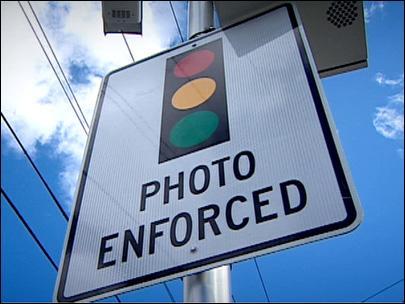
“The $490 dollar fine is set by the state legislature, that is not a fine that is set locally, ” as CCPD Lt. William Brown noted during his presentation to the city council. What was once a major point of controversy has become just business as usual. Red light cameras are here to stay in Culver City
The agenda of the City Council Meeting held on March 28, 2019 was a largely a consent calendar, a list of technical reviews; approval of an agreements with a consultant on stormwater, and an engineering firm to begin to design the long awaited landscape garden at city hall. There was also long back and forth between lawyers over the irregularities of paperwork filed for a bid to do sewer work at Mesmer and Overland. All required for the council to address, just the business of running the city.
But in a major step away from tradition, the renewal of the contract for red light cameras drew almost no protest. Lt. Brown gave the report for the city staff, noting that during 2019 a Request for Proposals was published, and the city recommended staying with Redflex.
Brown took care to emphasize that Redflex “does not share data with any other entity, specifically ICE.”
Mark Lipman was the only person to speak from the podium, and his emphasis was “if we have four and a half million dollars, we can put it in much better places than red light cameras, we can serve our unhoused population with this money … we need to get our priorities in order.”
Mayor Thomas Small offered that this was a topic that he was often approached to discuss. “Chief Bixby gets this one all the time, too.” The statistics from the city showed that red light cameras did not increase the number of collisions. “Since the camera were installed, the rate of accidents either stayed the same, or went down.”
Brown noted, “Its the same fine if an officer stops you for running a red, it’s the same amount of money you would pay if you were pulled over.”
Of the $490 fine, set by the state, the city gets $155.82, the state gets $210.93, the county gets $123.25. Reflex charges a flat monthly fee per approach (each intersection), so as noted by Vice Mayor Meghan Sahli-Wells “the company has no incentive to create citations.”
The red light camera funds are used by the CCPD to pay for staff, and a technician to support the program.
The vote to renew the contract passed with five ayes.
Future council meetings will have much more discussion on stormwater treatment and landscape architecture, and there may be controversy on those issues, but red cameras have become just another part of the city.
Judith Martin-Straw


Be the first to comment